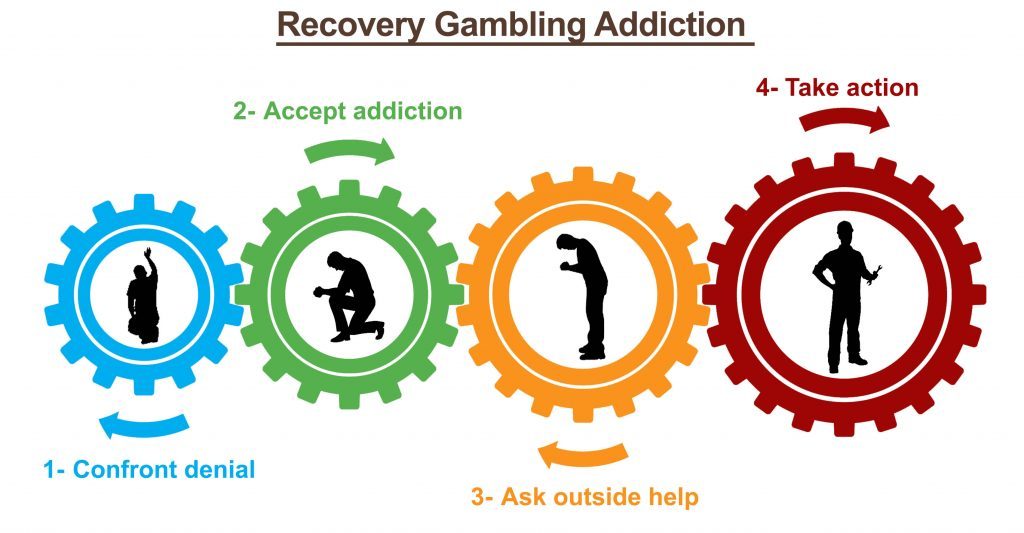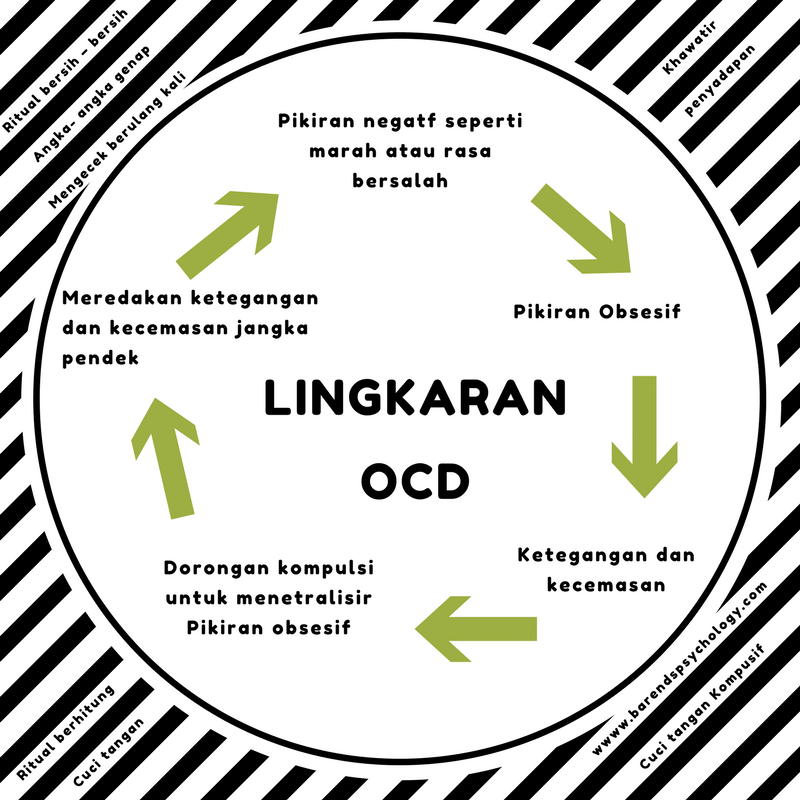Covert narcissistic parent
What is covert narcissist abuse? Are children who are raised by covert parenting groomed and doomed for a life of abuse?
/ Blog / By Rachel Graham
Narcissists and narcissism, words are thrown around without much thought, a blanket label for inappropriate behavior. Narcissistic Personality Disorder (NPD) is a cluster B personality disorder in the DSM-5 and is defined as having a pervasive pattern of grandiosity, the constant need for admiration, and a lack of empathy and must meet 5 of these nine criteria.
- A grandiose sense of self-importance
- A preoccupation with fantasies of unlimited success, power, brilliance, beauty, or ideal love
- A belief that he/she is special and unique and can only be understood by, or should associate with other special or high-status people or institutions
- A need for excessive admiration
- A sense of entitlement
- Interpersonally exploitive behavior
- A lack of empathy
- Envy of others or a belief that others are envious of him/her
- A demonstration of arrogant and haughty behaviors or attitudes
For a narcissist, there might be problems occurring in these two or more areas:
- Identity
- Self-acceptance
- Empathy
- Intimacy
Narcissistic behavior can be overt or covert. An overt narcissist has behaviors that are easily recognized by others. Covert Narcissistic behaviors are more subtle and often less obvious. A covert narcissist may present as self-effacing or withdrawn and it’s thought to be caused by genetics, childhood traumatic abuse or events, emotional unavailability of caregivers, and personality and temperament.
What are some signs used to identify a covert narcissist?
Passive self-importance— a covert narcissist craves admiration and might give back-handed compliments, or minimize their accomplishments or talents to encourage caring people to reassure and praise them.
Blame and shame— Covert narcissists employ a gentler approach to explain why things are your fault and why they are not to blame. They may play the victim or engage in emotional abuse to put themselves in a position to receive reassurance and praise.
Confusion— Covert narcissists take pleasure in creating confusion, gaslighting, creating doubt, and causing their victims to second guess themselves.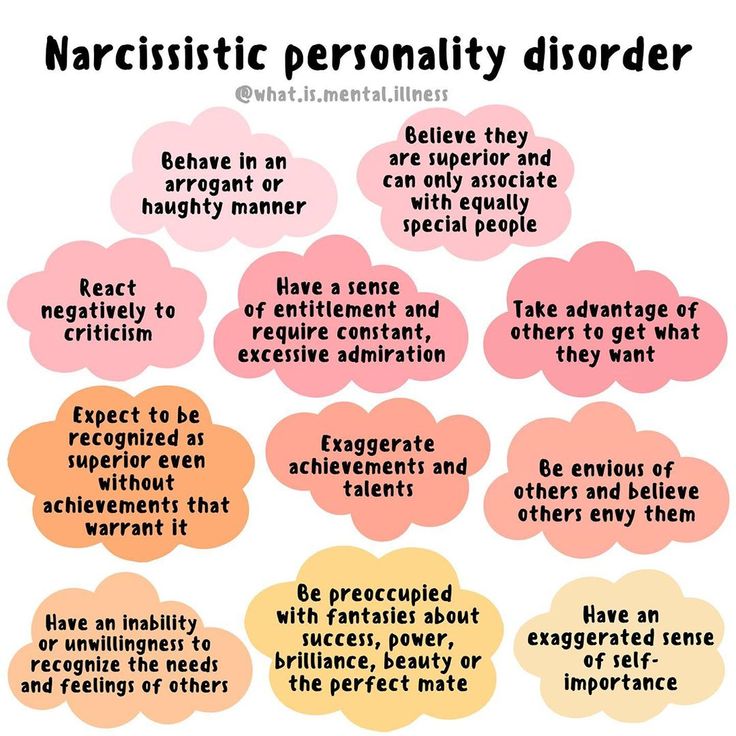
Procrastination and disregard—Covert narcissists will do whatever is needed to keep the focus and attention on themselves and they tend to target caring and compassionate people who are easily manipulated. The covert narcissist wants you to feel like your time and interests are not as important as their own, making you feel small and unimportant.
Giving with strings attached— a covert narcissist might look like they are compassionate and giving but their behavior is motivated by what they want in return.
The emotionally neglectful—The covert narcissist is incapable of developing and nurturing emotional bonds. Although a covert narcissist looks emotionally accessible, their behavior tends to be performative, with an intent to exploit the person, leaving them feeling small and disregarded through blame and shame.
If you have a covert narcissist in your life, there are some things you can do to protect yourself against their emotional abuse:
- Avoid taking anything the covert narcissist does or says personally.
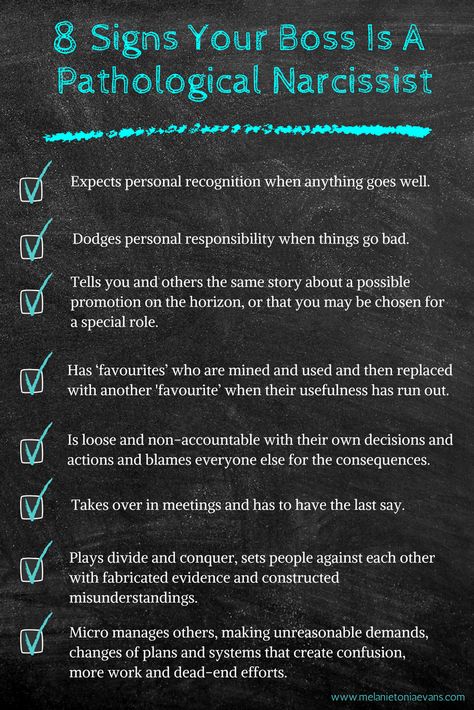 Understand their behavior is meant to manipulate you into doing what they want you to do, with little to no regard for how it may impact you. They need a “narcissistic supply” from those around them to feel validated.
Understand their behavior is meant to manipulate you into doing what they want you to do, with little to no regard for how it may impact you. They need a “narcissistic supply” from those around them to feel validated. - Set boundaries that communicate your values so the covert narcissist cannot exploit and manipulate you as a means to an end for their goals. This can often mean having zero contact.
- Advocate for yourself- When dealing with a narcissist, it is easy to lose your voice. Tune in to yourself, your goals, and your talents as a way to strengthen your relationship with yourself.
- Create a healthy distance from enmeshment- The goal of creating space is not to hurt the covert narcissist but to protect yourself from harmful interactions.
How being raised by a covert narcissist may lead to a lifetime of abuse:
- It is a societal belief that parents want what’s best for their children. The covert narcissist relies on this cultural assumption as a way of hiding abuse and neglect, gaslighting their children by stressing their ‘loving’ parent persona.
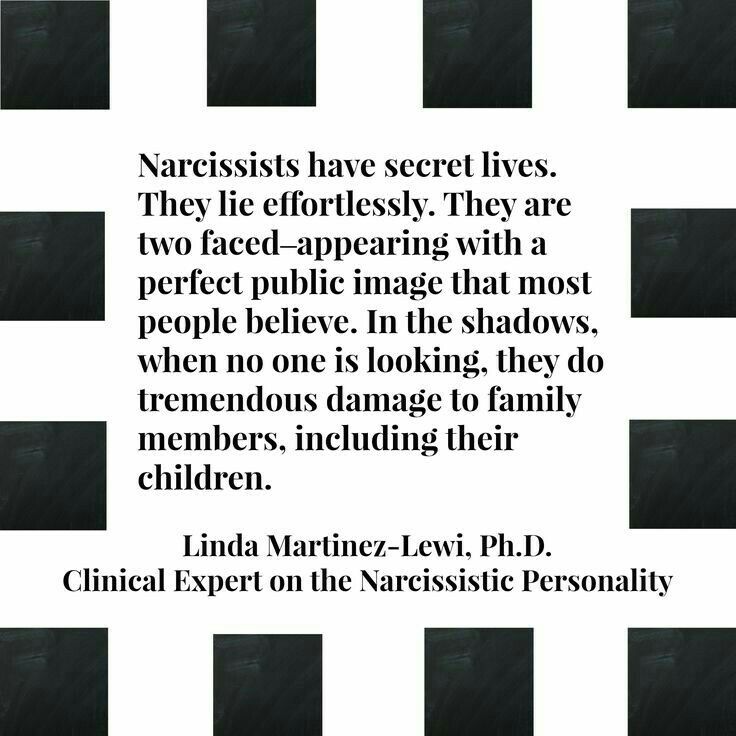
- The covert narcissist works hard to cultivate a caring, principled, devoted, and self-sacrificing image, using their children as a scapegoat for all that is negative.
- The covert narcissist is prone to hostile attacks camouflaged by a slip of the tongue, sarcasm, or false concern which for a child can feel like death by a thousand cuts.
- The covert narcissist always plays the victim, so they don’t have to take responsibility, instead of receiving sympathy for the ways they are neglected, disappointed, or harmed by others.
- Plausible deniability is used by the covert narcissist as a direct form of manipulation such as dismissal, gaslighting, minimizing, and triangulation.
- Covert narcissists make themselves look good by comparison to others, appearing more reasonable, selfless, and easygoing often by playing up the long-suffering martyr routine.
- Covert narcissistic parents exert ongoing control by offering the child the validation, attention, praise, and gifts they crave, creating a confusing I love you/I hate you dynamic.
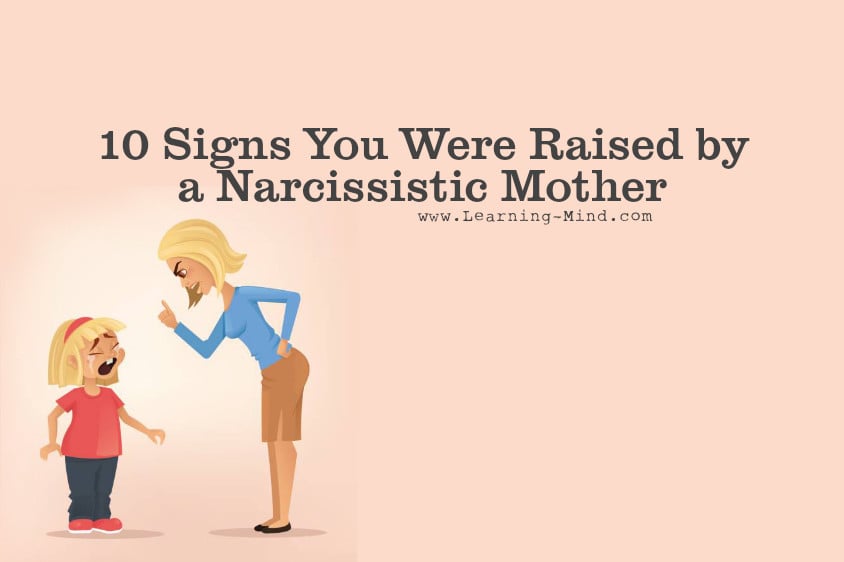
Groomed from infancy to accept the unacceptable and cruel behavior, children often blame themselves for the failure in their parental relationships. When we finally understand that we don’t have to ‘win’ a parent’s love, we realize that we have lived our entire lives without that love, surviving solely through our own resiliency. It is not that we are unlovable, instead, our parent’s profound impairment may come from their own unresolved trauma. Narcissism is hard to treat clinically because by definition the narcissist does not see a reason to change. Narcissists are incapable of having deeply authentic, intimate, vulnerable, and healthy relationships. If you are expecting these things from the narcissists it is similar to asking them to speak Greek to you when they have never been exposed to or understood the Greek language. You will be consistently disappointed expecting them to have a skill they do not.
Healing from the covert narcissistic abuse takes learning to trust ourselves after years of gaslighting.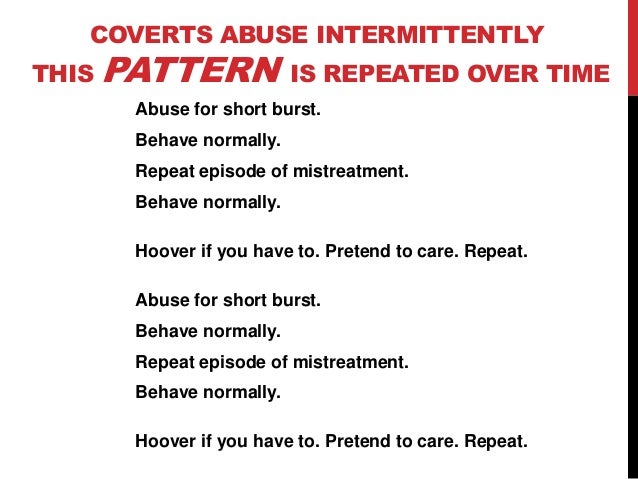 For recovery, we must distance or in some cases eliminate the relationship to gain our own trust and disavow the pervasive self-doubt and blame we were brainwashed with as children. For more information on mental health topics visit Evolve and Transform, where Rachel Graham shares her own experiences and invites others to do so as well.
For recovery, we must distance or in some cases eliminate the relationship to gain our own trust and disavow the pervasive self-doubt and blame we were brainwashed with as children. For more information on mental health topics visit Evolve and Transform, where Rachel Graham shares her own experiences and invites others to do so as well.
What Are the Signs of a Covert Narcissistic Mother?
Mothers experience challenges in life just like everyone else, and sometimes those challenges include living with symptoms of a personality disorder.
Not everyone with narcissistic personality disorder (NPD) experiences the same symptoms or symptoms with the same intensity. The same goes for a mother who may live with this condition.
Some mothers may live with covert narcissism, for example, which may make narcissistic traits more difficult to identify.
When you learn about some of the signs of covert narcissism, you may think that someone has a narcissistic personality, particularly if you’ve known them well for a long time.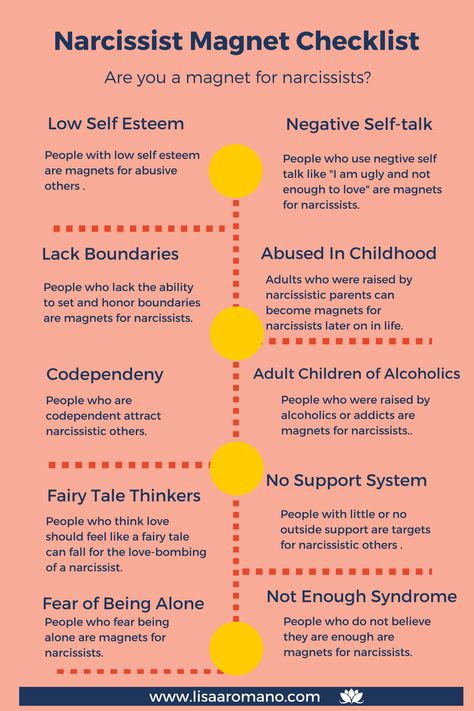 However, only a mental health professional can accurately diagnose the personality disorder.
However, only a mental health professional can accurately diagnose the personality disorder.
Determining whether some of your mother’s behaviors point to symptoms of narcissism may be challenging if you don’t have professional training.
Keep in mind that some of the signs you’ll learn here could be explained by other conditions or personal challenges.
In every case, NPD isn’t a personal choice. Most people with narcissistic personalities have diminished self-awareness and don’t realize that they live with the condition.
Narcissistic personality disorder is a formal mental health diagnosis in the Diagnostic and Statistical Manual of Mental Disorders, 5th Edition (DSM-5).
However, narcissism can also be a personality trait. This means that someone may exhibit narcissistic behaviors in some situations without meeting all the criteria to receive a formal diagnosis.
The core traits of narcissistic personality disorder include:
- a constant need for praise and admiration
- low capacity to experience and express empathy
- a pattern of grandiose behaviors and attitudes
People with narcissistic personality disorder will persistently experience at least five of the following symptoms across different situations:
- exaggerated sense of self-importance, often not based on facts
- a need to belong and be understood by people or institutions that are perceived as superior or elite
- persistent preoccupation with fantasies of self power, success, brilliance, beauty, or love
- a constant sense of entitlement
- a need to be admired and recognized as superior
- unwillingness or inability to recognize the feelings and needs of others
- tendency to use manipulation and exploitative tactics
- feelings of envy toward the success of others or a belief that others are envious
- superior or arrogant attitudes
What’s the difference between covert and overt narcissism?
Overt narcissism tends to be obvious. People might constantly show self-sufficiency and authority, demand admiration and attention, and express that they deserve better than they’re getting.
People might constantly show self-sufficiency and authority, demand admiration and attention, and express that they deserve better than they’re getting.
Covert narcissism, also known as maladaptive or vulnerable narcissism, can be less front-and-center.
While individuals with covert narcissism still experience many of the symptoms of NPD, including grandiosity and a feeling of superiority, they may not express them as openly in their behaviors and attitudes. They may also rely on passive-aggressive interactions.
Research suggests covert narcissism is more likely to overlap with low self-esteem, depression, and anxiety.
Identifying the signs of a narcissistic mother may not be as straightforward, especially if she lives with covert narcissism.
There are many ways someone may express the formal symptoms of narcissistic personality disorder or narcissistic traits. Everyone still has their own personality and individuality.
Behaviors can also change based on a child’s age, cultural background, personal circumstances, and other external and internal factors.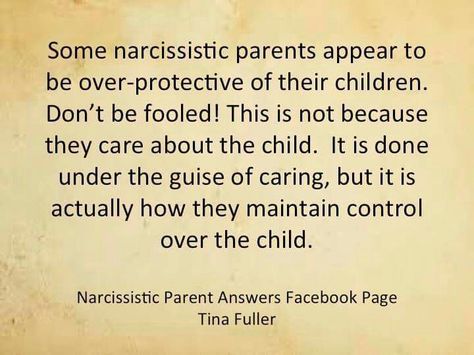
In general, a narcissistic mother may have a hard time identifying or connecting to the needs of a young child, for example. They may tend to use manipulation or guilt-based tactics with older children or adults. They could also play the victim in some situations.
Here are some indicators of a possible covert narcissistic mother:
Guilt-tripping
According to Sterlin Mosley, CEO of Empathy Architects and professional in human relations at the University of Oklahoma in Norman, Oklahoma, covert narcissistic mothers may use guilt trips with their children through the appearance of neediness.
“They may appear emotionally bereft, overlooked, under-appreciated, overworked, or participate in martyring behaviors,” he says. “Some narcissistic mothers may try to top their children’s problems, and tend to evoke feelings of guilt in children who feel unsafe sharing their concerns or issues.”
Blaming
Mothers living with covert narcissism may tend to shift blame. This means that they might have a hard time being accountable for their actions and emotions and put that responsibility on the child.
This means that they might have a hard time being accountable for their actions and emotions and put that responsibility on the child.
For example, they may say that they’re having a bad day because their child woke up late, or they may justify their outburst by saying it was caused by something the child did or said.
Silvi Saxena, a clinical social worker in Philadelphia, explains that this type of blame-shifting can often result from the mother’s need to avoid being judged negatively by her social circle.
Minimizing needs
If your mother lives with covert narcissism, you may feel like she persistently prioritizes her needs over yours.
This behavior can appear in many ways, particularly during early childhood. This may be, in part, due to the low ability to experience and express empathy that many people with NPD have.
This may lead them to not be aware of the child’s needs or not realize how their actions affect the little one. They may, for example, ignore a crying child or overlook their academic needs.
Not every narcissistic mother will act this way, though. And in some instances, they may even act the opposite way in an attempt to show high status through their children.
Being excessively helpful
“Covert narcissists, particularly those who are identified with being ‘nice’ or ‘good,’ can also appear gracious, kind, empathetic, or even generous,” explains Mosley.
That generosity and willingness to help, however, may sometimes be motivated by a need for praise and admiration. They may want to be portrayed as “perfect mothers” or admired for their many sacrifices and efforts.
“Typically, underneath the image, they are seething with rage that people are not admiring them sufficiently,” he adds.
Competing attitudes
In some cases, mothers with covert narcissism may compete with their children. This could take many forms.
For example, they may always have a “bigger” problem or accomplishment than the one you’re talking about, or they may act in certain ways in public to redirect attention from you to them.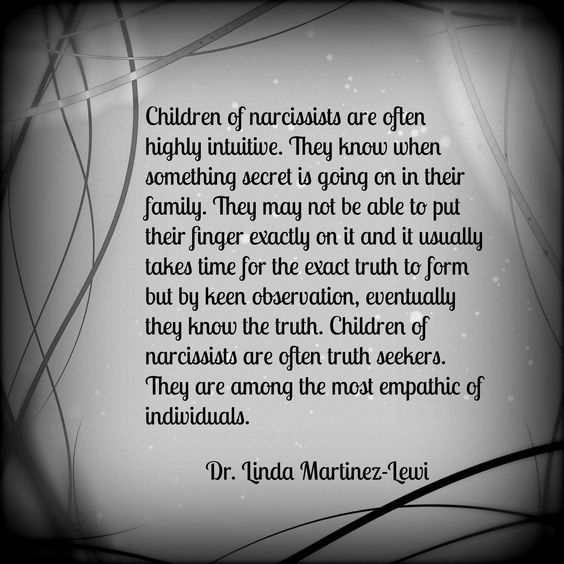
Holding high expectations
Sometimes, covert narcissistic mothers may see you as an extension of themselves. In this case, your behaviors are a reflection of their own.
Because of this, they may hold extremely high standards that lead you to be perceived as successful, smart, beautiful, or special in some way. They might often take the credit for these accomplishments.
Similarly, if you face challenges, a narcissistic mother may seem intensely upset and excessively critical out of worry that you may shed a negative light on them.
“Growing up with a covert narcissistic mother can render children hyper attuned to what will please others,” Mosley says.
The need to keep others happy, known as “fawning,” is common among children of narcissistic parents, he explains.
Those with covert narcissistic mothers may become particularly good at anticipating or reading the negative emotions of others. This may mean you become preoccupied with trying to contain those negative emotions in others before they appear or turn on you.
Growing up with a mother with covert narcissism may also make you more prone to engaging in relationships that repeat these patterns or become harmful.
“People with covert narcissistic mothers also find that they feel at home with ‘toxic’ or ‘negative’ people,” Mosley says. “Human beings unconsciously become attracted to what is familiar, no matter how dysfunctional it may seem.”
Not everyone growing up with a covert narcissistic mother will experience mental health effects. It depends on many factors, including other important relationships you had growing up.
But if you feel the experience has affected you in some way, know that healing is absolutely possible.
Narcissistic personality disorder is also a manageable condition. However, the need for support and healing needs to come from the person with NPD, which doesn’t happen often because of their poor self-awareness.
Your own healing journey may look differently depending on many factors, including the type of behaviors you were exposed to, your emotional resources, and the support networks around you.
“Mental health issues like depression, anxiety, [post-traumatic stress disorder], sleep issues, eating issues, and feelings of fear, shame, or guilt are also all likely to develop,” Saxena says.
Treatment for these conditions is possible and may involve psychotherapy and in some cases, medication.
It’s also possible to heal the mother-daughter relationship, or improve it in some aspects.
Narcissism can be a personality trait or a mental health diagnosis. In every case, it isn’t a personal choice.
Some people living with narcissism may behave accordingly in an open way, while others may live with covert narcissism.
Mothers living with covert narcissism may tend to play the victim, shift blame, or set high expectations for their children.
Being the child of a narcissistic mother may impact your mental health. If it has, healing is possible once you become aware of how it’s affected you.
3 signs that you were raised by a narcissist
53 421
Get to know yourself A man among people
In the eyes of outsiders, narcissistic parents are very courtesy and will charm anyone in a couple of minutes.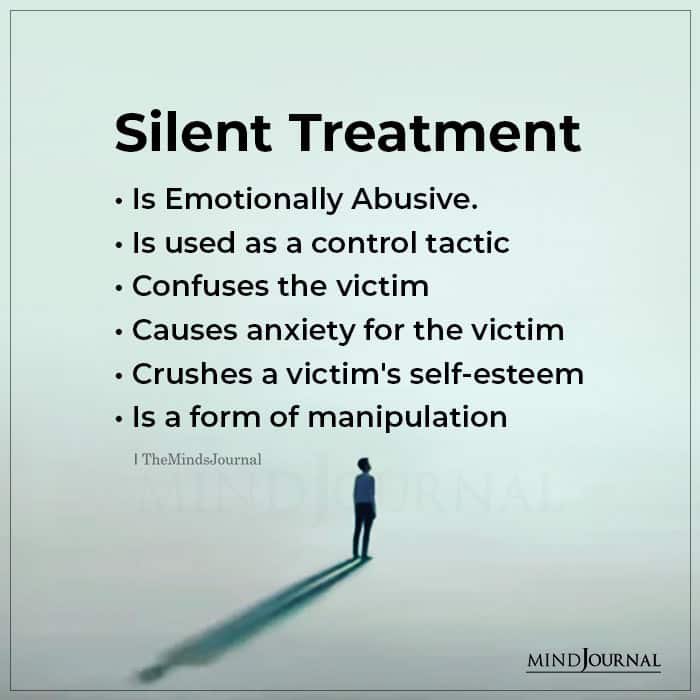 But at home, loved ones are constantly terrorized for not living up to their lofty expectations.
But at home, loved ones are constantly terrorized for not living up to their lofty expectations.
Narcissistic experts Wendy Bihari and Craig Malkin talk about the consequences of this parenting style and offer advice to grown children.
Who are daffodils?
Narcissistic personality disorder is recognized as a mental disorder. These people have an inflated sense of self-worth and base their identity on the praise and approval of others.
Their close relationship is superficial and focuses mainly on how they are treated. By themselves, partners and friends are not interesting to them. Narcissists believe that they are better than others, but they also experience a sense of shame when they are criticized or when they get into trouble.
The interests and desires of the narcissistic parent control the life of the whole family
Less than one percent of the population can be considered "clinical" narcissists.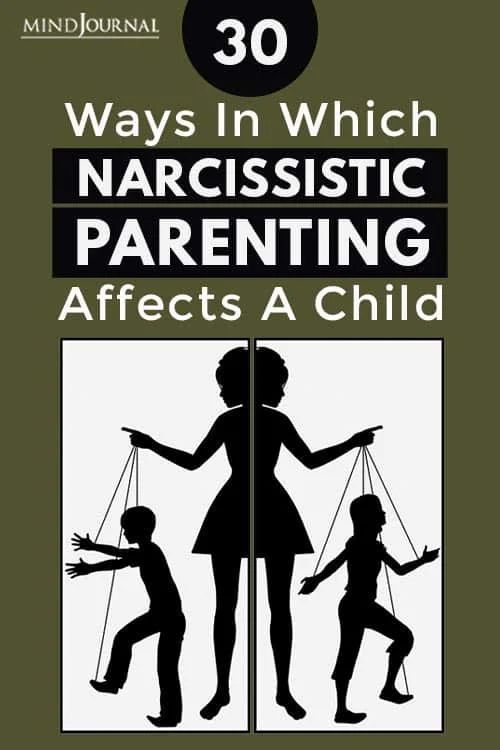 Between 2 and 16 percent of people who see psychotherapists at the urging of partners or colleagues have symptoms of a narcissistic disorder.
Between 2 and 16 percent of people who see psychotherapists at the urging of partners or colleagues have symptoms of a narcissistic disorder.
Although symptoms can vary depending on many factors, Wendy Bihari and Craig Malkin believe that there are several common traits in the personalities of adult children raised by these types of adults.
How are the children of narcissists alike?
1. It is difficult for you to make yourself known
The interests and desires of such a parent dominate the life of the whole family. Because of this, children deliberately oppose themselves to others and try to defend their position at all costs.
But more often they act as if their needs are not important. They allow others to disregard their desires and feelings because they are not aware of their needs and do not know how to express them.
They develop an aggressive style of behavior based on the fear that any weakness in them will be punished
“They can't say 'I insist' or 'I have a say' because that's how a narcissistic parent behaved,” explains psychotherapist Wendy Bihari. And in the subconsciousness of a grown child there is nothing more frightening than his figure...
And in the subconsciousness of a grown child there is nothing more frightening than his figure...
What to do with it? Learn as much as you can about narcissism. This way you can identify and eliminate dysfunctional attitudes from childhood.
2. You copy the behavior of a parent in many ways
Some children find that the only way to avoid ridicule and humiliation is to become a narcissistic parent themselves. Over time, they develop an aggressive style of behavior based on the fear that any weakness they have will be severely punished and that the best defense is an attack.
Narcissists have difficulty setting personal boundaries and see children as extensions of themselves. Insults and unflattering words addressed to someone else becomes their survival tactic, ”explains Craig Malkin. At the same time, in the future, in communication with loved ones, they block feelings, so as not to seem weak and vulnerable.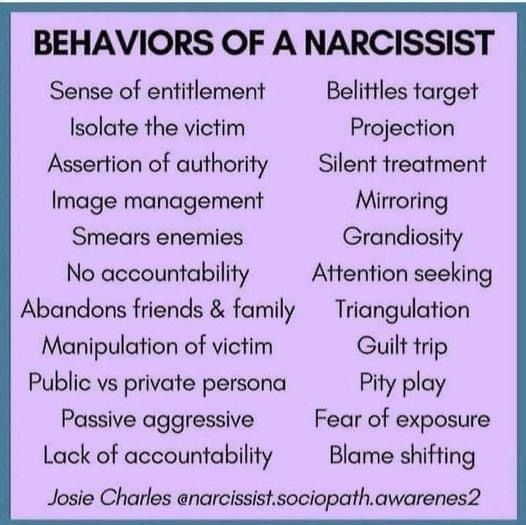
What to do about it? Seek a professional to help you break aggressive behavior patterns, especially if your partner and/or children are suffering from them.
3. You resent your brother or sister
Narcissists have difficulty setting personal boundaries and see children as extensions of themselves. In families with several children, one usually acts as a mirror for the best qualities of the parent. He gets more attention, support and admiration, but the demand from him is huge.
Another child becomes a scapegoat and "the shame of the family." He doesn’t fit the “pet” either, so you can’t expect anything from him. Both projections reflect different sides of the narcissistic personality and pit children against each other, offering them different models of an unhappy childhood.
Narcissists deliberately play people off for their own purposesWhat to do about it? Share this information with a brother or sister.
If you went to the "favorites", you can still harbor a grudge against them, because the brother / sister was subjected to much less pressure. If you were a “rejected child”, perhaps you are still worried about the fact that all the best was unfairly given to a “beloved” son or daughter.
Narcissists intentionally set people off for their own purposes. Their children may find that there is more to them than blood ties. As hostages who endure hard times together, they can become unusually close as adults.
Text: Xenia Diakova-Tinoku Photo source: Getty Images
New on the site object»
Scientists have revealed the secret of popularity of teddy bears
A visit to a sexologist: what you need to know — 6 main questions
Vaginal gummies: a gynecologist comments on an unusual novelty
How a midlife crisis manifests itself in women: 4 scenarios and methods change them
Is it possible to survive without love: scientists and psychologists explain
“I live in fantasy: every day I lock myself in a room and invent unreal stories.
What happened with me?"
If your parent is a narcissist
How to survive hard times: Psy's daily advice
Is it better to drink vodka or cognac - an explanation from a psychiatrist
"Husband went to his homeland and got married there" people
It is better to love a narcissist from a distance, especially if it is your parent. Julia Al Hall, author of a blog dedicated to this problem, is convinced of this: “Recognizing that one or both parents are narcissists is a long and painful journey. This is because even grown children continue to dream of love and approval.
The healthiest choice is to cut off all contact with your parents or communicate with them as little as possible. “Creating distance between your parents and you means that you have parted with the illusion that they can change,” explains Julia L Hall.
Here are some tips to help keep contact with narcissistic parents to a minimum.
1. Realize that health and well-being are most important
As a child, you did everything possible to please your parents, believing that your interests were secondary.
It's time to change priorities. “It's important to set boundaries,” says Julia L Hall. “I decided to nullify communication with my parents only when I became seriously ill.” Once bedridden, Julia realized that she could no longer endure the stress that her mother had been the source of.
Today her relationship with her mother is much better. “We didn’t communicate for two years, but then I took my mother to me - she had cancer, and I had to take care of her. But I set boundaries that weren't discussed, and she even learned to communicate with my daughter."
2. Learn to detach and set boundaries
If you want to free yourself and become an independent person from your parents, you must learn to detach and not react to their behavior. Set healthy boundaries: communicate via email or short phone calls, says psychotherapist Linda Martinez-Lewie, author of Living with a Narcissist: Treatment and Recovery.
State your position without pretensions or accusations, and then stick to the boundaries you set.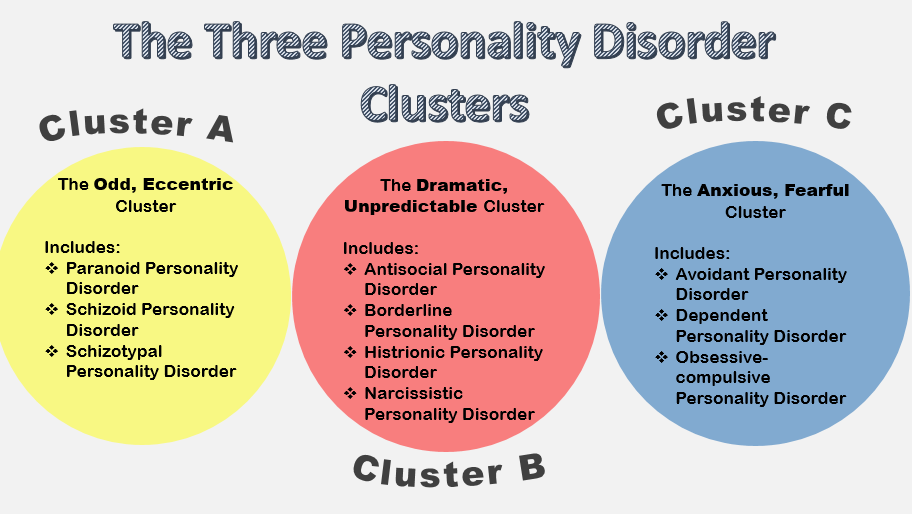
“E-mail communication should be limited to superficial topics. If a parent continues to terrorize an adult child, it may be time to cut contact completely, although this is not an easy decision,” Linda shares.
3. Do not enter into a confrontation
It is useless to complain and show a list of parental mistakes - he does not accept criticism. This can only make the situation worse.
“Narcissists are not aware of responsibility to other people and are incapable of empathy, so confrontation will bring you even more pain, frustration and anger. State your position without pretensions or accusations, and then firmly stick to the boundaries you set,” advises Caryl McBride, family therapist, author of Will I Ever Be Good Enough? Healing Daughters from Narcissistic Mothers.
4. Be prepared for the fact that the parent will not agree to a break in communication
These parents usually do not see the child as a separate individual with unique needs and may act aggressively to maintain control over the child's life.
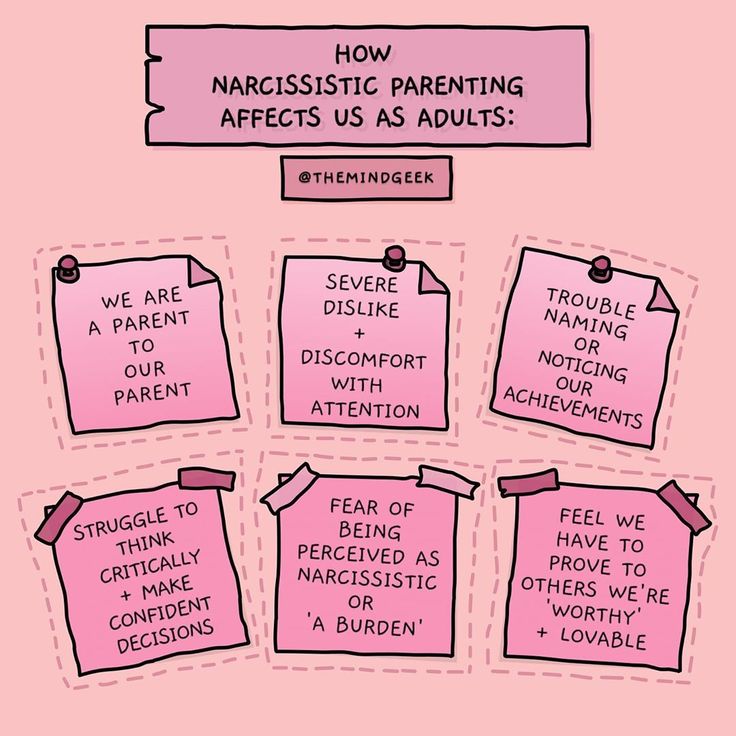
“Setting boundaries means respecting yourself. It’s a slow process that involves the ability to identify your needs, realize that they are important, and learn how to defend them,” says Darlene Lanser, family therapist, author of the book “How to overcome shame and codependency: 8 steps to freeing the real you.”
5. Don't blame yourself for the way the relationship worked out
Children of narcissists often feel guilty about being manipulated by their parents. But you are an adult, and it's time for you to understand that it's all about the behavior of your parents. It makes you move away from them.
“Narcissistic parents know how to shed a tear as soon as their children talk about their needs, and do everything to make the children feel guilty. Until you realize your own innocence, you will allow them to interfere in your life, ”says psychologist Fred Malkin, author of the book Rethinking Narcissism.
Relationships with such parents defy normal logic.

